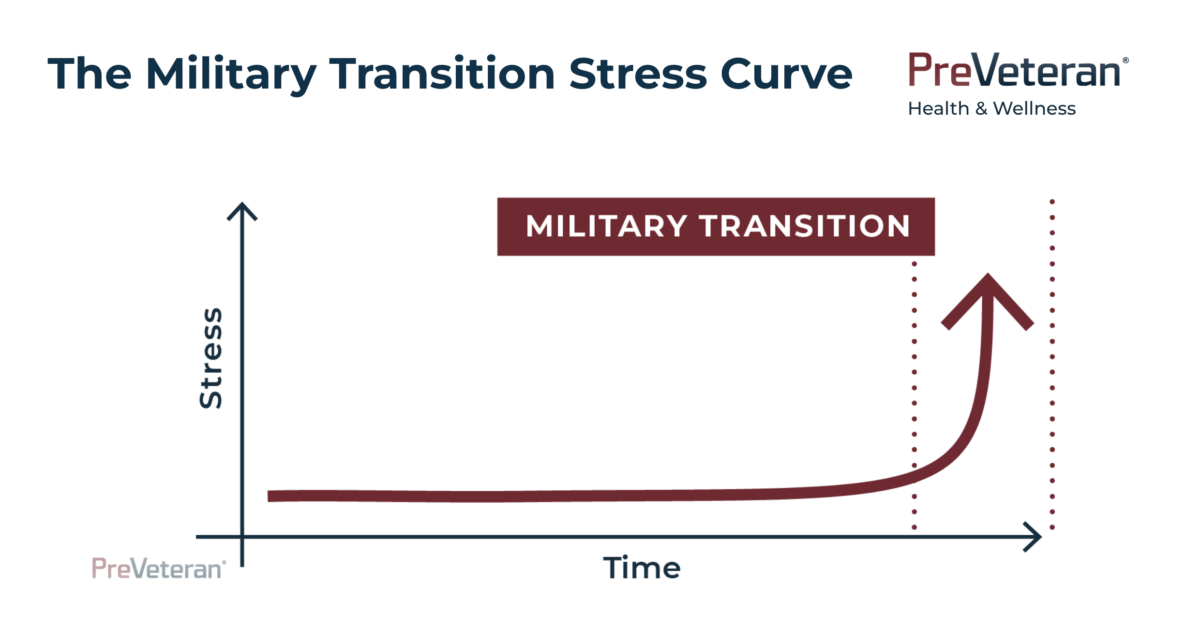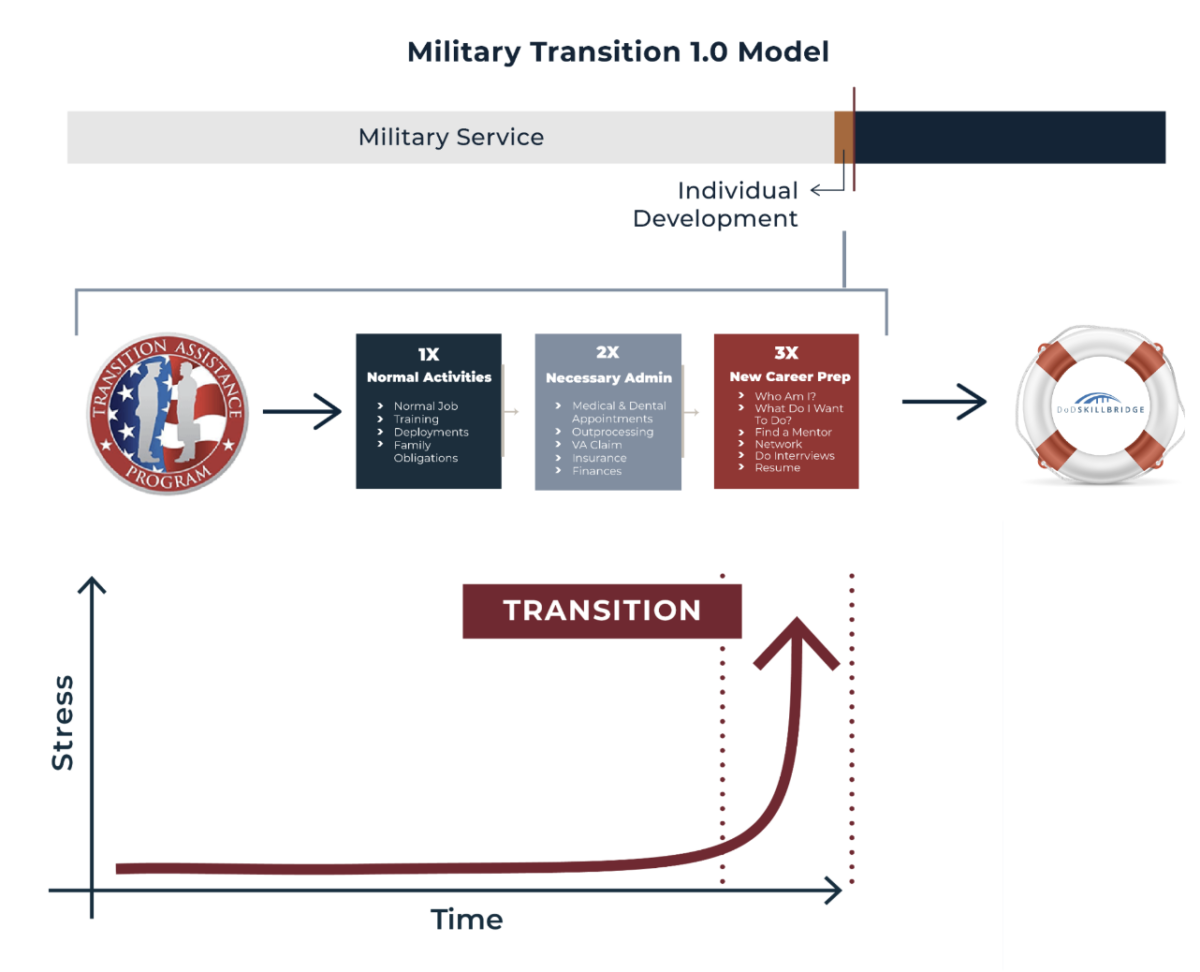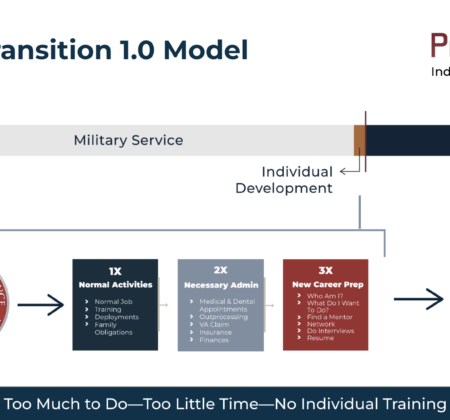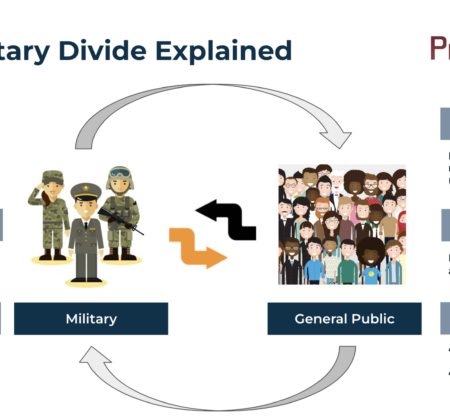The Health and Wellness Consequences of the Military Transition 1.0 Model

“The best way to reduce stress in your military transition is to be aware of the big differences between the military and private sector and begin aligning yourself to the private sector.” — Jason C. Anderson
In another article, we told you how the existing Military Transition 1.0 Model is not setting you or your family up for post-military success. The reason you’re not set up for success is because you’re asked to do too much, in too little time, with no individual training.
Underpinning this poorly structured model is a belief on behalf of the stakeholders that you’re “good to go” and capable of plugging seamlessly into private sector employment roles with little or no individual transformation needed.
At PreVeteran, we know you are smart, educated, and have a lot of grit. However, because the military and private sector systems are so obviously different, you’ll come out of the military with gaps and misalignments that will be an obstacle to your post-military success.

Take a moment to look at this graphic. If you believe in the foundational argument we provide here, common sense will tell you that the combination of having too much work to do, and too little time to do it, will lead to exponential stress increase as you get closer to your separation or retirement date.
Exacerbating that too much to do with too little time challenge is the more pernicious problem that they’ve told you that you’re “good to go” in your upcoming transition, and you can start seeing how this opens up a new and critical discussion topic that’s never discussed in the military transition space—that exponential stress increase on your health and wellbeing.
The Health & Wellness Consequence Created by the Military Transition 1.0 Model
Military service is unique to the employment world because 99% of you service members know the exact day you’re leaving the military. Typical exceptions are those who find themselves being medically boarded out of the military, which makes nailing down a specific date much more challenging.
As a service member, if you buy into the stakeholder belief that you are “good to go” or “plug-and-play” in the post-military world, you’ll be subject to the full weight of the transition stress curve and this will have an impact to your health.
Here are some of the health consequences you will likely encounter and why.
- Increased anxiety
- Increased worry
- Increased blood pressure
- Inability to sleep
- Waking up at night
- Irritability
- Relationship distress with your spouse or significant other
The reason this is happening is because you’re human and your mind and body know that you’re not prepared for your post-military life.
You Can Have Better Health & Wellness Through our PreVeteran Military Transition 2.0 System
The best way to avoid the negative health consequences associated with the Military Transition 1.0 Model is to outright reject the premise that you are “good to go” and can “plug and play” in private sector roles without a meaningful individual transformation.
The best way to ensure success is to make yourself aware of the private sector and their vast differences and become competent in that domain before you leave the military.
Ensuring you’re competent heading into the private sector and completely optimized for your post-military life is what we do at PreVeteran. And we guarantee results.
Don’t waste another moment and join our next cohort to begin your individual transformation. Click on this link to get started.


